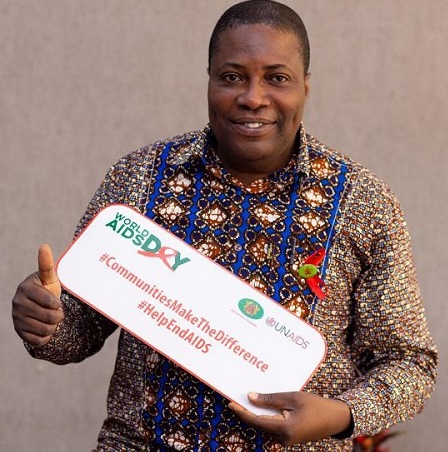
Emergency Contraceptive Pills do not prevent HIV/AIDS
A lot of young people are having unprotected sex and preventing pregnancy by taking Emergency Contraceptive Pills (ECP).
This phenomenon of frequent use of the ECP without condoms is harmful to girls while exposing both boys and girls to sexually transmitted infections, including HIV/AIDS.
The National AIDS & STI Control Programme (NACP) has observed this situation and indicates that young people are now more afraid of pregnancy than acquiring the HIV infection.
The Programme Manager of the NACP, Dr Stephen Ayisi Addo, explained to the Junior Graphic that the reduction in HIV prevention campaigns which projected images of the physically deteriorated state of people living with the condition had contributed to the complacency.
“However HIV/AIDS is still real in Ghana. We have not eradicated or eliminated it here.
Transmission is still occurring.
“Taking ECP does not protect you against HIV infection which has worst consequences on you and your future than getting pregnant.
HIV infection has no cure and we don’t know when and where the cure would come so prevention is better,” he emphasised.
Dr Ayisi Addo stated that taking ECP continously beyond a certain level could affect health and that was why there was an insistence on adding condom protection to family planning methods to prevent sexually transmitted infections, including HIV.
Describing the ordeal students living with HIV go through, he said some students stopped taking their medication regularly because of the stigma associated with the condition once they entered boarding school while some also hid in order that their school mates would not detect they had the disease.
He said the result of that was the deterioration of their condition and death adding that,” it is better for the youth to be free of HIV infection.
“The estimated number of young people between zero to 14 years who died of AIDS in 2018 was 2,769 while for those between 15 to 24 years who died of AIDS in the same year was 956.
Why should we be losing young people at that high rate? We need to be serious with HIV/AIDS,” he declared.
On transmission of HIV, he said it had not stopped stating that in 2018, for instance, new cases of HIV recorded among children between zero to 14 years was 3,317 while for those between 15 to 24 years, the new infections that occurred among them was 553.
For 2017, 5,520 new cases of HIV infection occurred among young people between 15 to 24 years.
He said the NACP would continue to emphasise prevention as the message for young people to practice abstinence stressing that prevention was better than cure.
Dr Ayisi Addo advised: “Don’t be careless, if you think abstinence or delaying early sex is difficult, try AIDS.
If you think using condoms is difficult, try AIDS and you will realise it is more difficult to manage it.”
He asked religious groups, youth groups and all concerned to preach abstinence and speak against sexual immorality because that could expose young people to STIs, including HIV.
